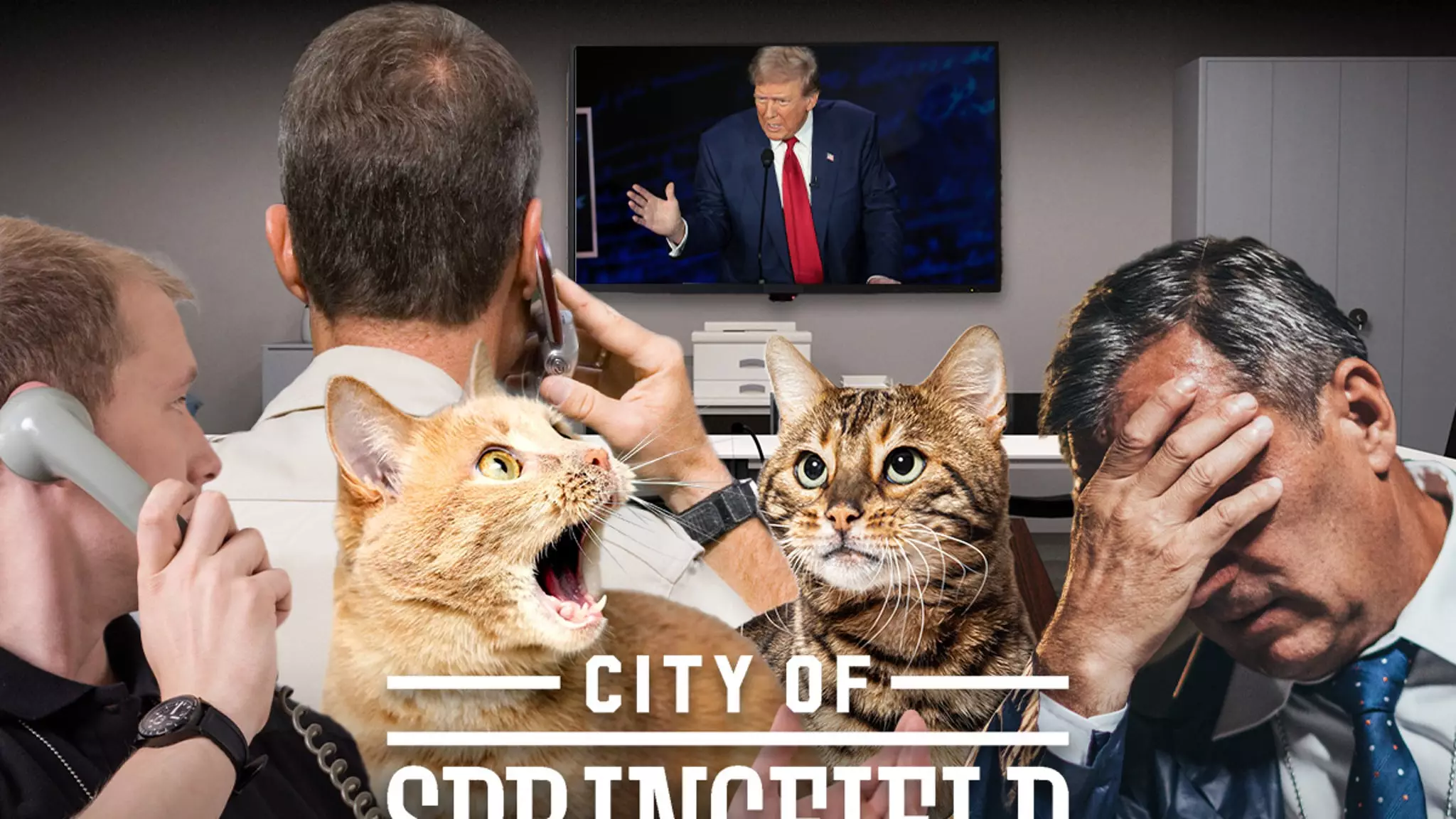In an age where information spreads rapidly, the consequences of unchecked narratives can quickly escalate into a frenzy of fear and confusion. Recently, a statement made by former President Donald Trump regarding Haitian immigrants in Ohio stirred public anxiety, leading to a barrage of calls to local law enforcement. The specificity of his claim—that these immigrants were consuming pets—ignited a wave of concern that overwhelmed the police department’s ability to respond to genuine emergencies. This incident highlights the peril of political rhetoric that disregards facts, demonstrating how influential figures can incite public disorder and exacerbate tensions within communities.
According to police reports from Springfield, Ohio, the department experienced a staggering increase in call volume, with inquiries doubling in number following Trump’s comments during a debate. Previously inundated with hundreds of calls a day, the police found themselves diverted from their primary responsibilities, such as investigating actual crimes, to fielding calls from alarmed citizens asking about a non-existent crisis. This remarkable uptick in calls showcases the tangible effects of misinformation, revealing a community gripped by fear and a misguided perception that their safety was threatened by unsubstantiated claims.
The police department reported that, contrary to the claims made, not a single incident of animal consumption by immigrants had occurred. This fact underscores the importance of responsible communication; when claims are made without factual basis, the repercussions can severely disrupt community order and safety.
The conflation of disinformation and public response can often lead to unnecessary panic. In this instance, though Trump’s remarks were fact-checked during the debate—for instance, reports from local city officials reaffirmed the safety of Springfield, stating that no pets had been harmed—the damage had already been done. This incident speaks to a broader cultural concern about the acceptance of sensational claims without critical scrutiny.
Additionally, the amplification of the narrative through social media, as evidenced by Donald Trump Jr.’s sharing of a 911 call alleging the misconduct of four Haitian migrants, only served to propagate the myth further. Such actions not only misrepresent the situation but can also foster xenophobia and a misguided righteousness among segments of the population, which can lead to harmful social dynamics.
This scenario presents crucial implications for community dynamics, particularly regarding trust in immigration and law enforcement. Leaders and public figures must exercise caution and accountability in their communications. During times of heightened political discourse, the responsibilities of influential leaders extend beyond mere rhetoric; they shape public perception and behavior.
In the wake of such misinformation, it is essential for communities to remain vigilant and uphold critical thinking as a priority. Civil discourse should be grounded in factual evidence rather than conjecture. The Springfield Police Department’s experience serves as a compelling reminder of the importance of discerning fact from fiction, and the necessity for community members to engage in constructive discussions rather than succumb to fear-based narratives. In a world rife with misinformation, the need for clarity has never been more vital.


Leave a Reply